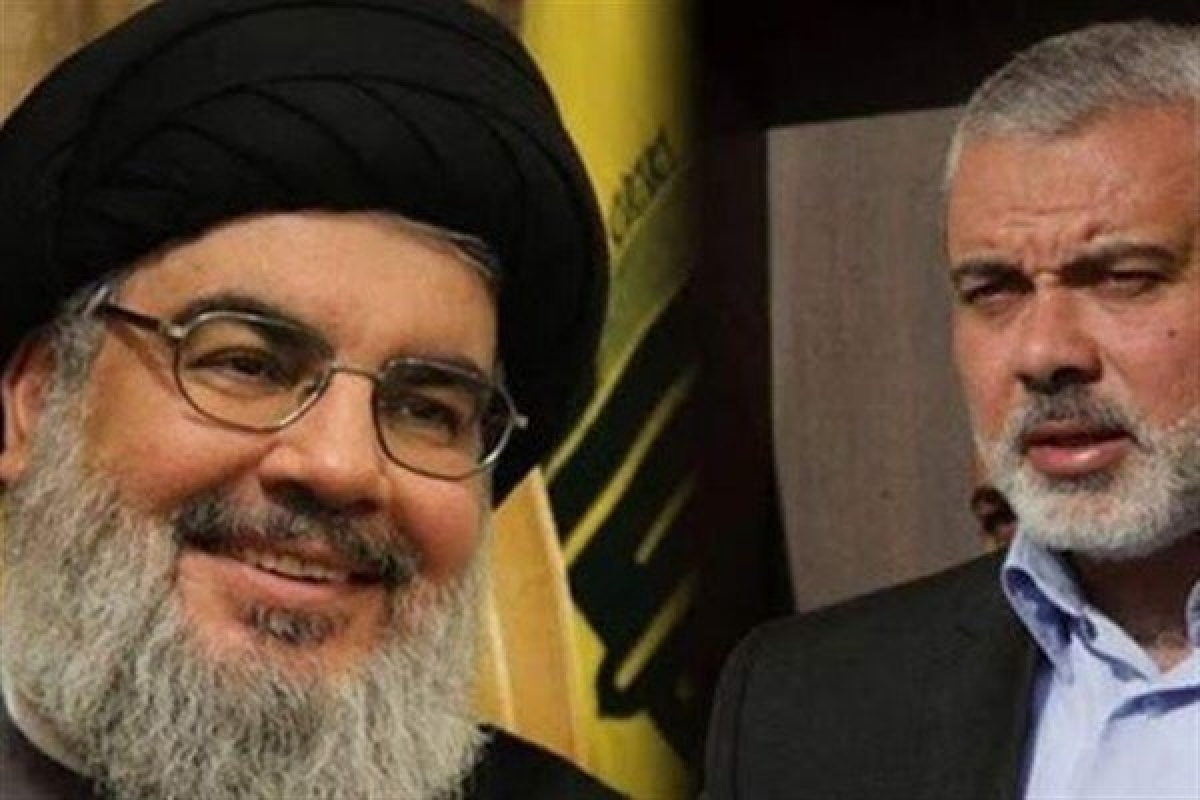Iran eskaliert weiter: 'Teheran spielt mit dem feuer"

Terroristentreffen: Ismaale Haniyeh (Hamas) und Hassan Nasrallah (Hizbollah) in Beirut, Bildquelle: Mehr News
Durch Angriffe proiranischer Milizen wurden in den letzten Tagen im Irak und Syrien ein US-Amerikaner getötet und weitere Soldaten verletzt. Bisher halten sich die Amerikaner extrem zurück, weil sie eine weitere Eskalation vermeiden wollen. Die sucht aber der Iran, wie erst jüngst bei einem Meeting "Achse des Widerstandes" in Beirut bekräftigt wurde.
Inzwischen soll die Zahl von Verletzten auf 24 gestiegen sein. Die USA bringen Luftabwéhrbatterien ins Land und haben sowohl im Irak als auch dem Libanon allen "non essential staff" ihrer diplomatischen Vertretungen zum Verlassen der jeweiligen Länder aufgefordert.
Derweil trafen sich Hamas, Hizbollah, iranische Regierungsvertreter und Repräsentanten anderer Milizen in Beirut, um sich über die nächsten Schritte abzusprechen, während es neue israelische Angriffe auf Ziele in Syrien und dem Libanon gab:
One Iraq-based and Iran-supported group, believed to be a front for the long-established Kateb Hezbollah, last week issued a statement threatening attacks on US military bases in the UAE and Kuwait. Paramilitaries from militia in Syria that are controlled by Iran have been deployed close to the Golan Heights, in a further threatening move.
On Wednesday, leading officials of the three principal Islamist extremist groups currently at war with Israel met in Beirut to discuss the conflict.
After the meeting in Lebanon, a brief statement said Hezbollah’s leader, Hassan Nasrallah, had agreed with Hamas’s Saleh al-Arouri and Palestine Islamic Jihad’s leader, Ziad al-Nakhleh, that the three – along with other Iran-backed militants – wanted to achieve “a real victory for the resistance in Gaza and Palestine” and halt Israel’s “treacherous and brutal aggression against our oppressed and steadfast people in Gaza and the West Bank”.
Tobias Borck, a senior research fellow in Middle East security studies at London’s Royal United Services Institute, said Iran was “literally playing with fire”.
“What we are seeing is the next level out from the Gazan war. This is all carefully calibrated to show solidarity. Iran is saying: we see the aircraft carriers but we are not scared and we can hurt you too. It is incredibly dangerous,” Borck told the Guardian.
“A lot of people want to understand it as Tehran pulling the strings but … actually these are partners who share a worldview and ideology. One element is claiming the mantle of leading the opposition to a western-imposed order in the region.”
The impression of a growing regional conflict was reinforced by Israeli airstrikes against Syrian army infrastructure in response to rockets launched from Syria, an ally of Iran, last week. Syria’s state news agency said the attack near the south-western city of Daraa killed eight soldiers.
The strike followed the launch of two rockets that set off air raid sirens in the Israeli-occupied Golan Heights.
Israeli warplanes also bombed an airport in Aleppo, in northern Syria, in a move that experts said was probably intended to disrupt supplies of ammunition and arms from Iran to Hezbollah in Syria.